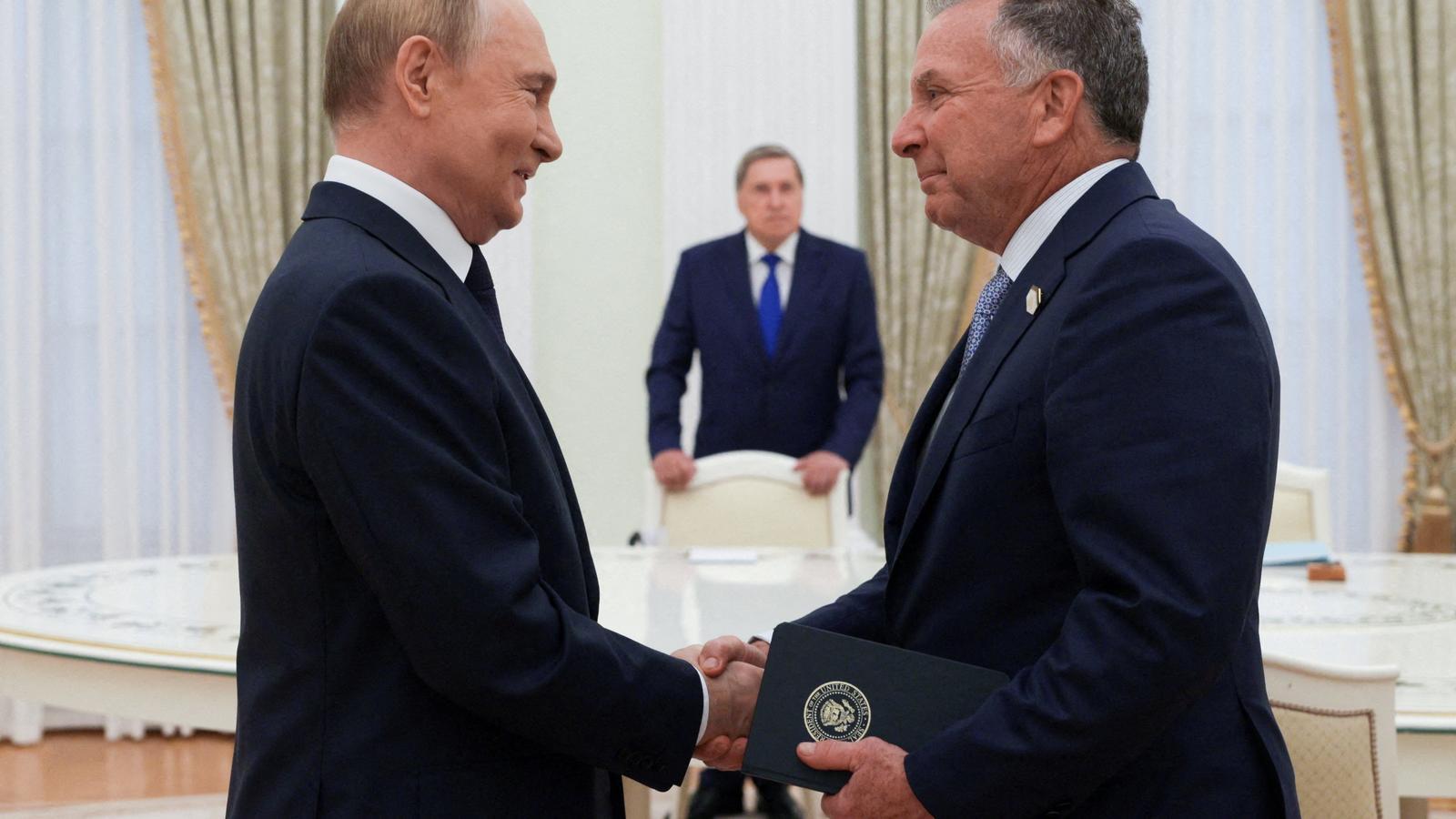Trump wants to meet with Putin "very soon" to stop the fighting in Ukraine.
White House sources have confirmed the plans to several media outlets following Witkoff's first meeting with the Russian president in Moscow.

Moscow / WashingtonThe positive reviews of the first meeting between White House special envoy Steve Witkoff and Russian President Vladimir Putin appear to have accelerated the thaw with Washington. Hours after the meeting in Moscow ended, Donald Trump raised the possibility of a meeting with Putin "very soon," which could be "the end of the road." "There's a good chance there will be a meeting very soon," the US president said on Wednesday, as the ultimatum he had issued to Russia to end the fighting in Ukraine is about to expire.
In fact, the meeting with Putin would be after the August 8 deadline, as White House sources have confirmed the president's intentions to hold the meeting as soon as possible, starting next week. After this face-to-face meeting, the Republican also wants to meet again with Ukrainian President Volodymyr Zelensky to monitor the situation.
"The Russians have expressed a desire to meet with President Trump, and the president is willing to meet with both President Putin and President Zelenskyy," White House Press Secretary Karoline Leavitt said. The spokeswoman's comments contrast with what other sources familiar with the situation have said. While Leavitt says it is the Russians who have requested to meet with Trump, other sources claim it is Trump who wants to meet with Putin.
Hours earlier, the Kremlin sent a formal but positive message about the meeting between Putin and Witkoff on Wednesday. The Russian president's advisor, Yuri Ushakov, also present at the meeting, described it as "very useful and constructive," explained that the two sides exchanged "signals" about the Ukrainian conflict and even discussed "the prospects for the possible development of strategic cooperation between the United States and Russia."
Another of the meeting's participants, Kiril Dmitriev, director of the Russian Direct Investment Fund, the man in charge of exploring business opportunities with the Americans, described the meeting as "very important" and assured that "the constructive dialogue" between the two countries "continues."
Ushakov added that they will not provide further details of the conversation until Witkoff communicates the results to Trump. However, the tone of the Russian negotiators moves away from the scenario of an imminent clash that would translate into a substantial tightening of US sanctions against the Russian economy, as the US president had threatened if Putin did not commit to stopping the war by Friday.
In the days leading up to the meeting, the Russian media considered it highly unlikely that the Kremlin would give in to the US demands. Russian government sources also assured Reuters that Putin had no intention of playing along. First of all, because, as the Russian president has recently insisted, his army holds the initiative at the front, and the general staff has assured him that the Ukrainian front could collapse within two or three months. Putin maintains his ambition to occupy all four Ukrainian provinces he annexed. However, although Russian troops are making progress, especially in Donetsk, it seems unlikely they will be able to achieve their objectives in the short or medium term.
Trump keeps pushing
In Moscow, it is clear that the prospect of new sanctions will not be enough to force the Kremlin to deviate from its roadmap toward Ukraine, which, ultimately, seeks the surrender of Volodymyr Zelensky. Furthermore, they are confident that the imposition of restrictions will not have a significant impact because the Russian economy has so far weathered Western isolation with relative success.
Be that as it may, Trump continues to press ahead with tariffs. A few hours after the meeting, he signed an executive order imposing an additional 25% tax on India in retaliation for purchases of Russian oil. The tariffs will be applied to goods delivered 21 days after the document is signed.
In the text, the US president warns that he could extend these measures to other Russian trading partners, arguing that "the actions and policies of the government of the Russian Federation continue to pose an unusual and extraordinary threat to the national security and foreign policy of the United States."
An air truce?
According to Bloomberg, one of the formulas Putin could use to seduce Trump is an air truce, some kind of moratorium on drone and missile attacks, which the US president has expressed particular outrage over. However, This proposal was already raised by Trump to Putin during a call in March, And the Kremlin, rather than simply rejecting it, simply implemented a unilateral ceasefire on energy infrastructure and spent a month accusing the Ukrainian army of violating it without evidence.
"We offered Russia silence in the sky: no missile or drone attacks, no attacks on civilian infrastructure and, specifically, on energy. All of this was violated by the Russians very cynically," laments Ukrainian President Volodymyr Zelensky. Just hours before the meeting with the US envoy, the Russian army struck a recreation center in the Zaporizhia region, killing two people and wounding at least twelve. "No matter what the Kremlin says, they will only try to end the war when they feel the right pressure," he warned. Russia is breaking records for drone launches week after week: in July alone, it sent nearly 6,300, more than 200 a day on average, with peaks of more than 700 in a single night.
Kiev's fear is that Putin will manage to dodge Trump's ultimatum with some cosmetic concession intended to buy time to continue the fighting. A Reuters source close to the Kremlin describes the entire Russian effort to establish a negotiation process simply as "an attempt to convince Trump that Putin does not reject peace," but that, in essence, it "has no real substance."
